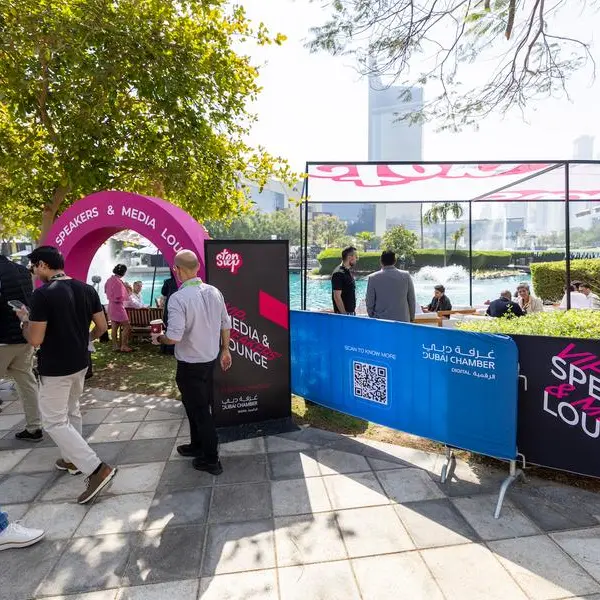· Despite oil price volatility, APICORP estimates a 19% increase in total MENA energy investment activity over the next five years, up by $145 billion from 2015
· Investment will be driven by Saudi Arabia, UAE, Kuwait and Iran
· Continuing low oil prices, regional instability, and deteriorating sovereign credit ratings will create significant challenges and constraints to investment
Total committed and planned energy investments in the MENA region, including Iran, will reach $900 billion over the next five years, according to a new report published by the Arab Petroleum Investments Corporation (APICORP).
The multilateral development bank's report, MENA Investment Outlook - Big plans in uncertain times, reveals that despite uncertainties in the region's investment outlook, APICORP estimates a 19% increase in total MENA energy investment activity over the next five years, representing an increase of $145 billion from the year before, to $900 billion.
APICORP states that $289 billion of investment has already been committed to projects under execution in the region, while an additional $611 billion worth of development is planned.
Leading the investment drive will be Saudi Arabia, along with the UAE and Kuwait, which will look to invest across the energy value chain. Iraq and Iran will play catch-up and are determined to push their ambitious oil and gas plans forward, but will face many above-ground challenges.
In North Africa, Algeria has vowed to pump billions into its upstream sector. Much is also expected in Egypt as recent gas finds promise to meet rapidly rising power demand. Renewable-energy projects will be at the forefront of efforts to meet rising power demand in Morocco, Tunisia and Jordan.
Commenting on the report, Dr. Raed Al-Rayes, Deputy Chief Executive & General Manager of APICORP, said:
"Global investments in oil and gas fell by 20% in 2015 compared with 2014, one of the biggest drops in history. However, against this trend, we expect the MENA region to continue investing heavily as major energy-exporting countries expand the size of their energy sectors and strengthen their positions within global markets."
Despite the increasing investment plans within the MENA region, APICORP's report also highlights several challenges and constraints that will prove pivotal over the medium term.
Global investments in the oil and gas sector are closely interlinked with oil prices. Although some MENA countries, including Saudi Arabia, Iran, the UAE and Kuwait, announced that they would go ahead with investment plans despite low prices, other countries with low fiscal buffers and competing pressures on its revenues, particularly Iraq, may have to reconsider their ambitious capacity-expansion programmes.
In addition, financing projects has become more challenging. Standard & Poor's Ratings has indicated that credit worthiness in the MENA region has deteriorated over the past six months, with average sovereign ratings of 'BBB'. Although recent efforts to attract foreign investment have seen some success, political and economic concerns mean investors will be cautious.
The region is also in turmoil. Persistent conflicts in Syria, Iraq and Libya, and the emergence of a new coalition in Yemen, is reshaping the geopolitical landscape. Conflicts and instability in these countries will keep investments at bay in the near term. Regional instability is unlikely to recede in the immediate future, and investors will be wary of spill-over effects in neighbouring countries.
Dr. Bassam Fattouh, an energy sector specialist and advisor to APICORP, added:
"2015 was unsettling for the MENA region at a time of slower global economic growth and low oil prices. Many GCC governments have announced that budget deficits and public expenditure will be tightened in response. But, governments will prioritise critical investments in their energy sectors.
"Saudi Arabia has the largest committed and planned investments in the medium term, while the UAE and Kuwait have ambitious programmes throughout the value chain. The GCC will use their investments to maintain the status quo as the major supplier of energy to the rest of the world. Iran and Iraq will also play catch-up, especially as investments in Iran start flowing back after years of sanctions."
-Ends-
About APICORP
The Arab Petroleum Investments Corporation (APICORP) is a multilateral development bank established to foster the development of the Arab world's oil and gas industries. The organization was created under the terms of an agreement signed by the 10 Member States of the Organization of Arab Petroleum Exporting Countries (OAPEC) in September 1974. APICORP's vision is to transform the Arab energy industry into a powerful force for the region's economic progress. Driven by this vision, APICORP seeks to make equity investments and provide project loans, trade finance, advisory and research to the energy industry.
APICORP is one of the five organizations established by OAPEC to promote cooperation and economic integration in the Arab hydrocarbon and petrochemical industry. Since its founding, APICORP has made significant contributions to the evolution of the region's energy industry. It has made equity investments in 22 oil and gas joint venture projects worth over $13 billion and participated in direct and syndicated energy finance transactions worth over US$126 billion. APICORP's aggregate commitments in these transactions, including both in equity and debt, are valued in excess of US$11 billion. Apart from this, it has provided advisory and treasury services related to financing and project development; and published highly regarded macro-economic research. These areas continue to define APICORP in today's marketplace.
APICORP is independent in its functioning and carries out its operations on a commercial basis. The Corporation's headquarters are located in Dammam, in the Eastern Province of Saudi Arabia. APICORP also operates a Banking Branch in Manama, Bahrain.
More information can be found at: www.apicorp-arabia.com
For further information:
Iain Munro, Bell Pottinger
Mobile: +971 555597389
Email: imunro@bellpottinger.com
© Press Release 2016


















